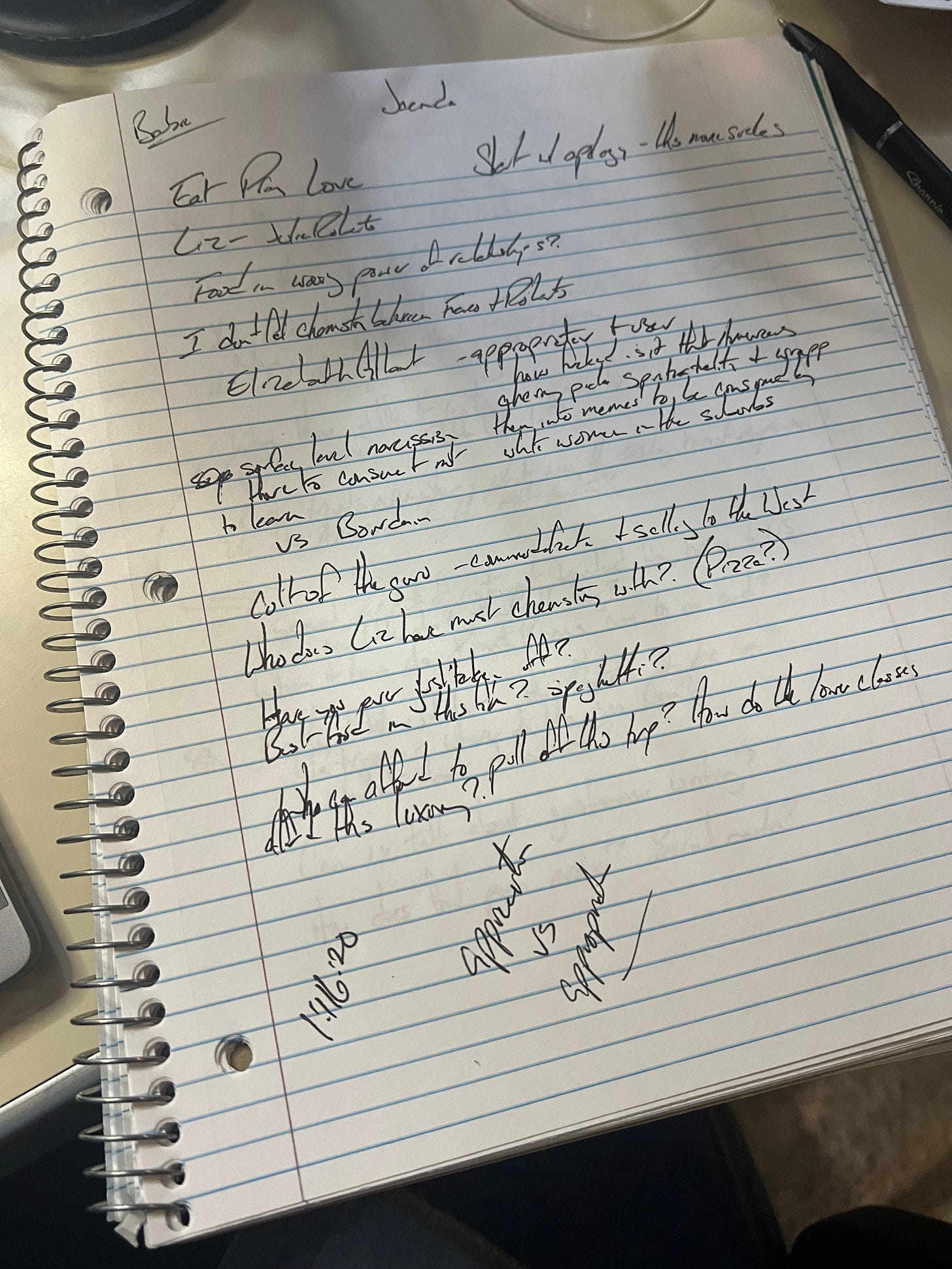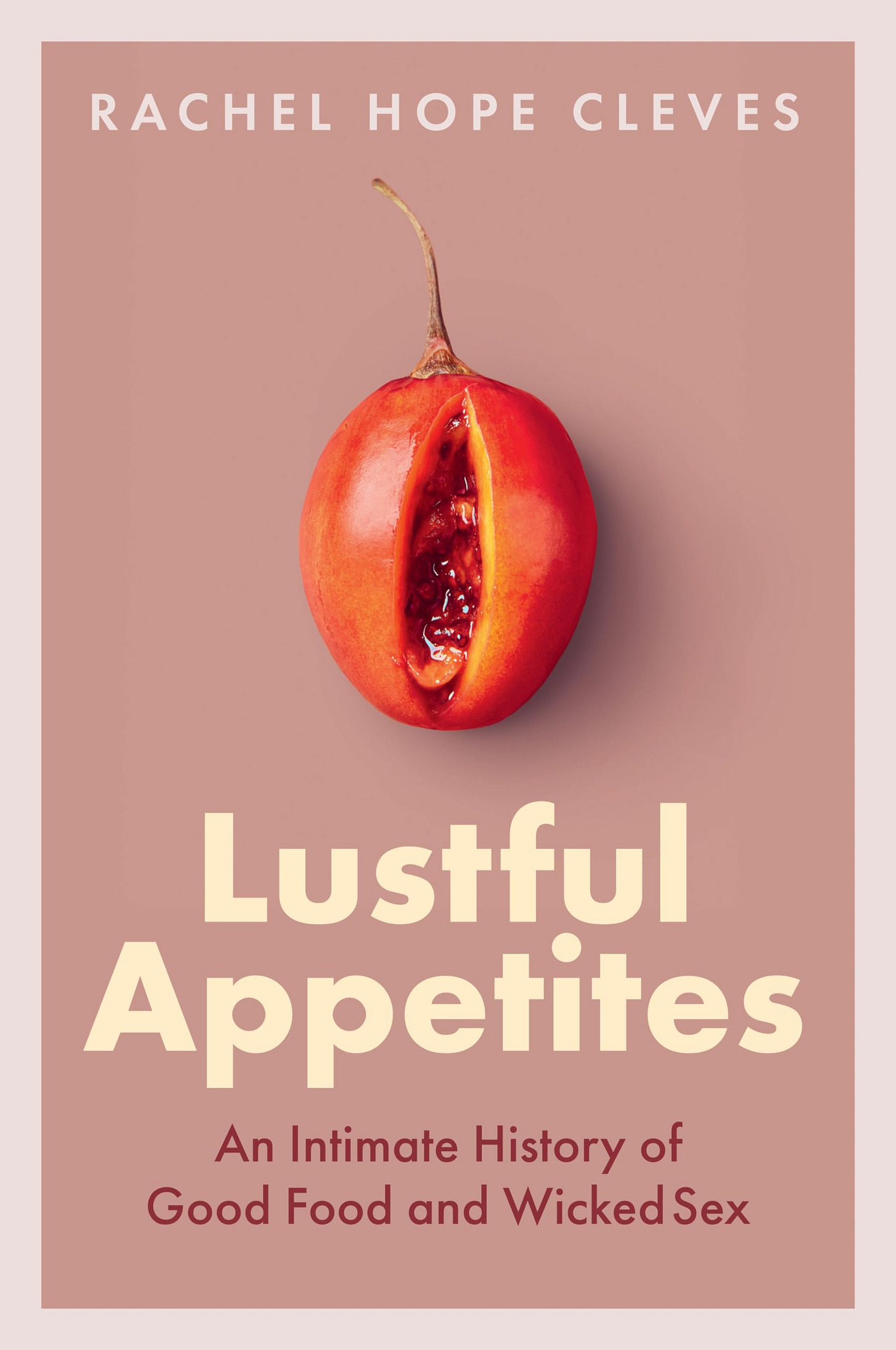It’s time for a different kind of history. We read all the time about what early Americans thought about life, liberty, and the pursuit of happiness. But what about other pursuits of happiness? How did early Americans conceptualize pleasure? And more specifically, how did they link the indulgences of great food with, well, really great sex?

It turns out that there’s a lot to talk about, if we’re up for it. Enter Dr. Rachel Hope Cleves, author of Lustful Appetites: An Intimate History of Good Food and Wicked Sex. Rachel’s work follows Americans to Europe and back starting in the late 18th century all to way to today, exploring how Americans explored pleasure and how that affected the choices they made in the world around them.
I had seen Rachel post about writing this book for a while and was eager to talk to her about it. And she was gracious enough to come on the pod to talk about her book and answer the billion questions I had about it. But this is ostensibly a history and movie podcast, so what film do we choose? We settled on the Julia Roberts film Eat, Pray, Love, which was in turn an adaptation of Elizabeth Gilbert’s memoir of the same name.
You may remember the movie or just the general storyline. New York-based writer Liz Gilbert questions her life and divorces her husband before ultimately setting off on a series of adventures across the globe, seeking to find herself via sex or spaghetti.
For a lot of us, it’s hard to relate to Liz. Most of us don’t have the wealth necessary to travel the world on a whim, meaning that in the best case we get either good food or wicked sex, but rarely both.1
However, the movie does allow us an entry point into Rachel’s work, especially since food tourism is such an important component of the book. And when people weren’t physically traveling to new locales for exotic meals, then the food made its way to them. Rachel and I had a blast talking about the new restaurants that opened in New York and San Fransisco, and how restaurants were at times linked to sex work. We also got to talk about the gendered spaces inside restaurants, including—and this something I’d never even considered before reading the book—where waitresses came from. And of course, we had to talk about the role of social media in shaping contemporary discourses about food, community, and personal identity.
About our guest:
Hungry historian and novelist. Professor at the University of Victoria. Kind of a Big Deal.
Rachel Hope Cleves is the author of four award-winning works of history: Lustful Appetites: An Intimate History of Good Food and Wicked Sex (2024), Unspeakable: A Life Beyond Sexual Morality (2020), Charity and Sylvia: A Same-Sex Marriage in Early America (2014), and The Reign of Terror in America: Visions of Violence from Anti-Jacobinism to Antislavery (2009).
In 2023, Cleves published her first novel, A Second Chance for Yesterday (2023), co-authored with her brother, the futurist Aram Sinnreich.
Her research has been featured in The Washington Post, The Boston Globe, salon.com and brainpickings.org. She writes in a treehouse in Victoria, British Columbia.
Get her book!
Find Lustful Appetites on Amazon.
Listen to the pod!
Rachel is awesome. Her book is awesome. And so is this conversation. So without further ado, find it on Apple Podcasts and Spotify below, or wherever you listen.
And finally, thank you so much to our recent paying subscribers. As you can tell, I’ve been ramping up the content—especially the writing—in kind. HATM is free and I’m proud of that. But if you want to support my work you can do so for as little as $5 a month. You can do that below. Regardless, I’m glad you’re here and part of the community.
I spend a lot of time in the kitchen lately.







There is a cookbook, or, rather, there was a cookbook, called InterCourses which features ingredients purported to be aphrodisiacs through history. However, the recipes aren't the appeal of the book, no, it's really about the photography, much like the work of Georgia O'Keeffe, the cover of Prof Cleves's book, and that recent Baltimore MiLB affiliate with the oyster cap (you know the one, and if you don't, I'm not sure what to tell you other than it is EXACTLY what you think it is.) In my 20s, I had a wall calendar with images (and recipes) from the book - it's absolutely stunning work: https://www.intercourses.com/
It's interesting to think that the connections between pleasure (of any kind, not just sexual) and food have been sparking ideas for longer books, though, and I'll have to add this one to my TBR.